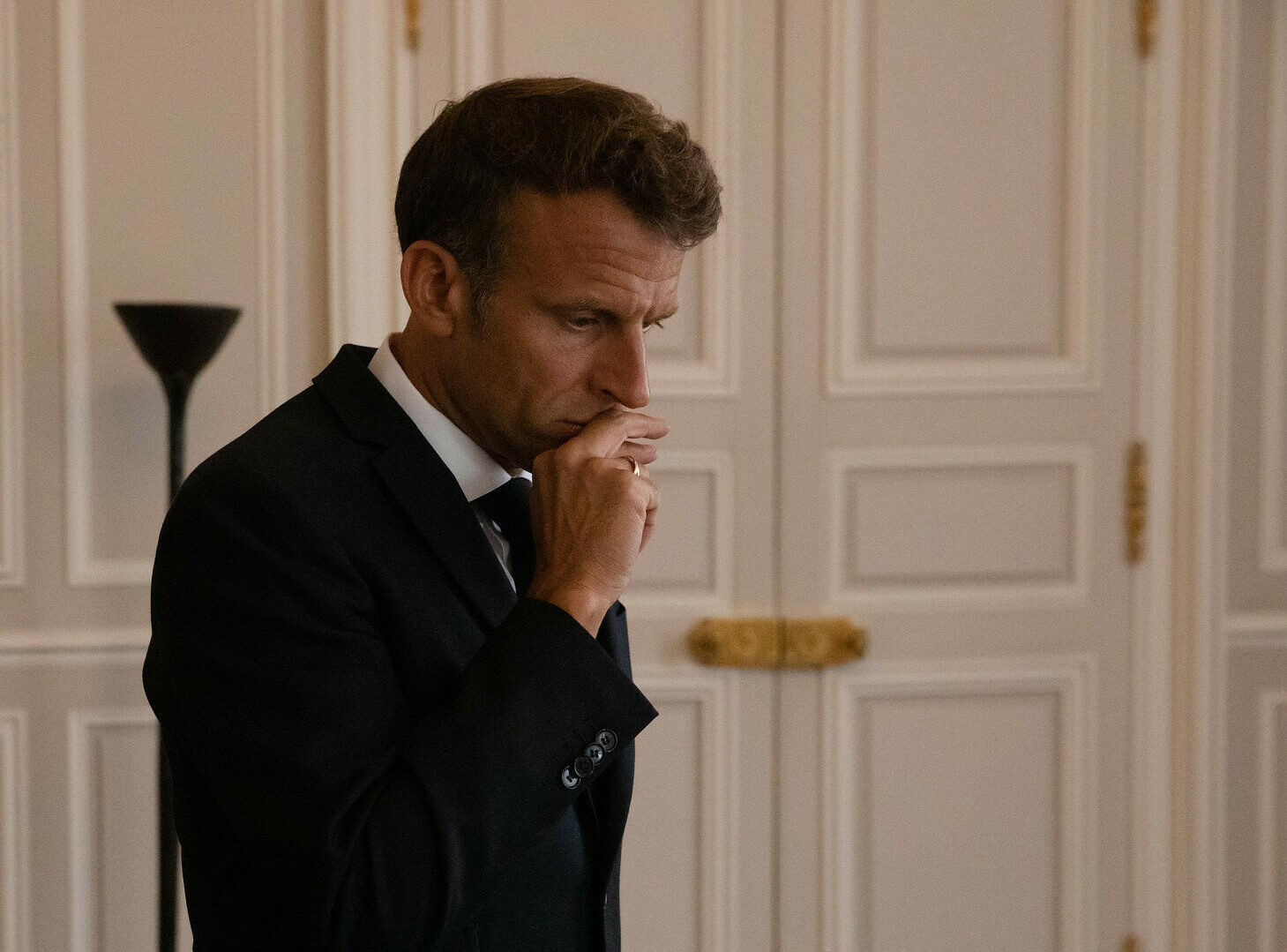Will the French retire Macron?

After months of unrest and strikes, France yesterday approved a pension reform that raises the retirement age from 62 to 64. To do this, however, Macron has bypassed a part of parliament and a government crisis is around the corner. Facts and comments from the French and international press
“A crazy parliamentary day”. This is how Libération defines yesterday in France, in which President Emmanuel Macron "bypassed" a branch of parliament to approve the disputed pension reform by resorting to paragraph 3 of article 49 of the Constitution.
A decision that immediately put the opposition into turmoil, which has already announced no-confidence motions against the government.
WHAT THE PENSION REFORM IN FRANCE PROVIDES
It has mobilized millions of people since the beginning of the year and has been deemed "extremely unpopular" by many French newspapers, including Les Échos .
As the economic-financial newspaper explains, the pension reform plans to move the legal retirement age to 64 in 2030 – and not from 62 to 65 in 2031, as Macron announced during the presidential campaign – and to speed up the extension of contributions to 43 years starting from 2027.
HISTORY OF A REFORM THAT INFLAMED FRANCE
After last Wednesday 's strike which mobilized 480,000 people throughout France, according to the Interior Ministry (1.7 million, according to data from the CGT trade union confederation), Macron, writes Libération , goes to bed hoping for a vote on pension reform by the National Assembly (one of the houses of parliament).
Upon awakening, after a breakfast with the leaders "of a majority that is no longer majority", the votes are counted and the head of the senators of Les Républicains, Bruno Retailleau, speaks of "a very, very, very risky vote ”. The numbers show an advantage of less than ten votes in favor of the text. The line remains that of "go to the vote".
First stage: the Senate, as expected, gives its ok. But shortly before 2 pm the news began to spread that, uncertain of obtaining a majority in the National Assembly, Prime Minister Élisabeth Borne was of the idea of favoring recourse to paragraph 3 of article 49 of the Constitution, which allows avoid parliamentary debate.
After a second meeting with Macron and the leaders of the majority, the decision was made: the reform must be done, coûte que coûte .
Opposition MPs condemn the "denial of democracy". It's the tussle.
As soon as Borne enters the hemicycle, the deputies of La France insoumise all stand up holding a sheet of paper with the words "64 years is no" in their hands and sing the Marseillaise. The sitting is suspended. After completing his speech, Borne declares: "There is uncertainty […] We cannot run the risk that 175 hours of parliamentary debate will go up in smoke".
Thus the 100th appeal to paragraph 3 of article 49 in the history of the Fifth French Republic is made official, knowing, according to what the premier herself said, that there will be "one or more motions of no confidence" to bring down the government. Thus, he concluded, "parliamentary democracy will have the last word".
The opposition forces have already filed the motions which will be voted on on Monday.
HOW MACRON JUSTIFIED THE UNPOPULAR REFORM
The decision to resort to this extraordinary measure in order to get the pension reform approved was justified by Macron by indicating "financial risks".
Without the reform, according to the tenant of the Elysée, the inflationary context, the increase in interest rates and the fever of the financial markets would jeopardize the future of France.
“My political interest would have been to go to the vote. Among all of you, it's not me who is risking my job or seat", the president would have said to his ministers, "but I believe that, at present, the financial and economic risks are too high […] We cannot play with the future of the country".
However, according to many experts , France is not going through a financial crisis of the magnitude described by Macron and, therefore, would not justify the use of special powers, which risk only damaging its image.
WHAT'S HAPPENING TO MACRON NOW?
The pension reform, as Les Échos observes, is "highly symbolic" and "an important social test" for the president who finds himself facing a united union front and very unfavorable polls.
At the moment the adjective most used by the French and international press to describe Macron is "weakened". The newspapers across the Alps speak of "admission of weakness", "failure", "trousers" and foresee "an enormous political crisis".
The German Die Zeit headlines "The Republic blocked" and states that "there are reforms from which a government never recovers". For El Pais, recourse to paragraph 3 of article 49 symbolizes "the failure of politics and a profound institutional crisis".
On the other side of the ocean, things are no better. The New York Times writes that "the conflict over pensions reveals a weakened and more isolated Macron" and Politico speaks of "an intransigent and weakened leader, who now faces a harsh backlash from opposition lawmakers and protesters".
Will the people then ask for his head? By a mocking coincidence, the National Assembly overtaken by the president is located right in front of what was once the Place de la Revolution, today the Place de la Concorde, where in 1793 Louis XVI was sent to the guillotine.
This is a machine translation from Italian language of a post published on Start Magazine at the URL https://www.startmag.it/mondo/i-francesi-manderanno-in-pensione-macron/ on Fri, 17 Mar 2023 10:58:37 +0000.
